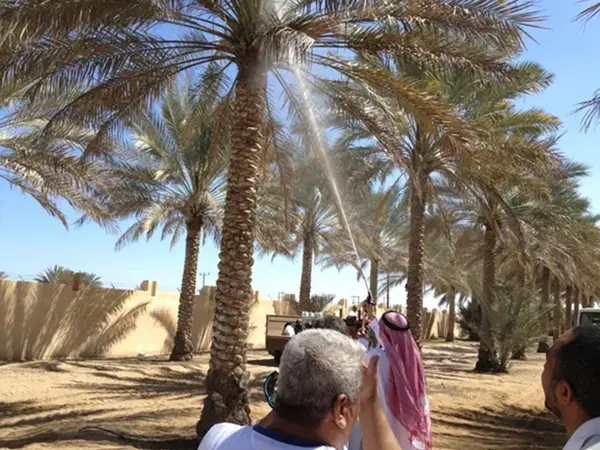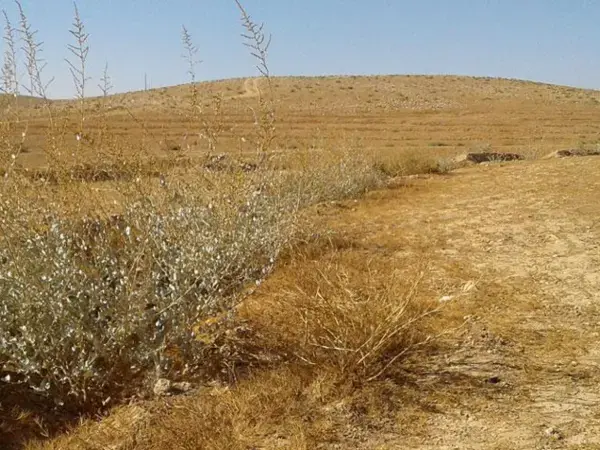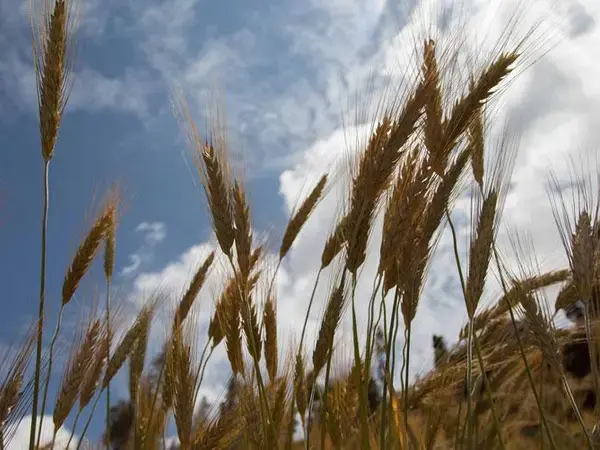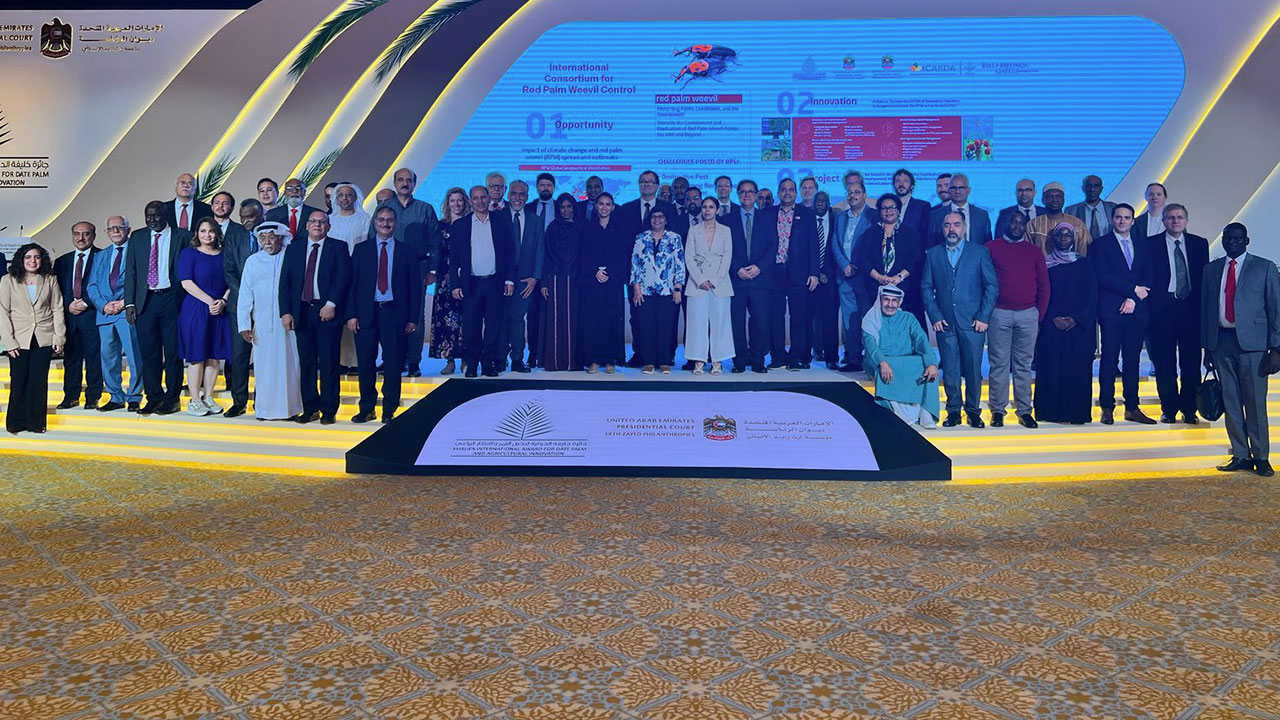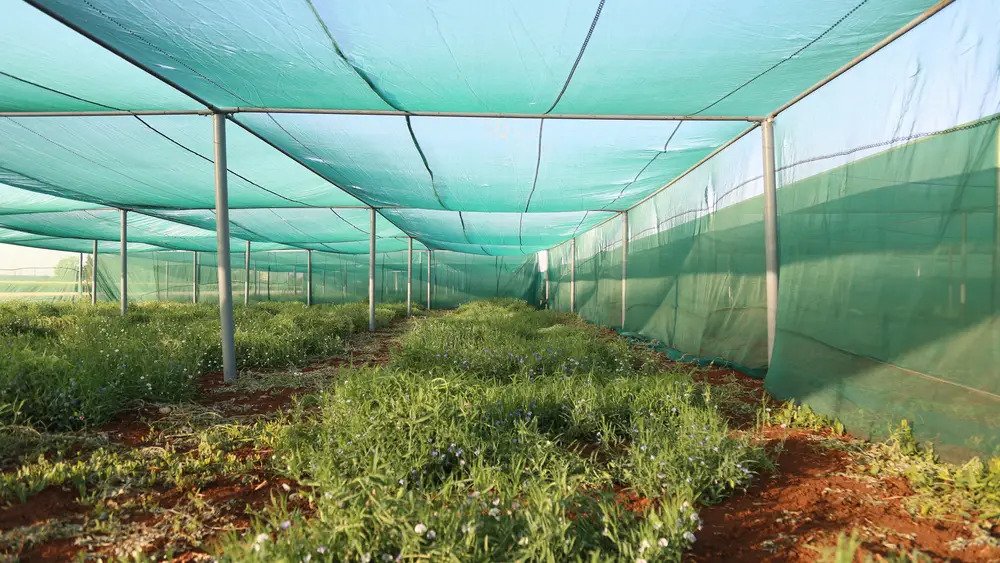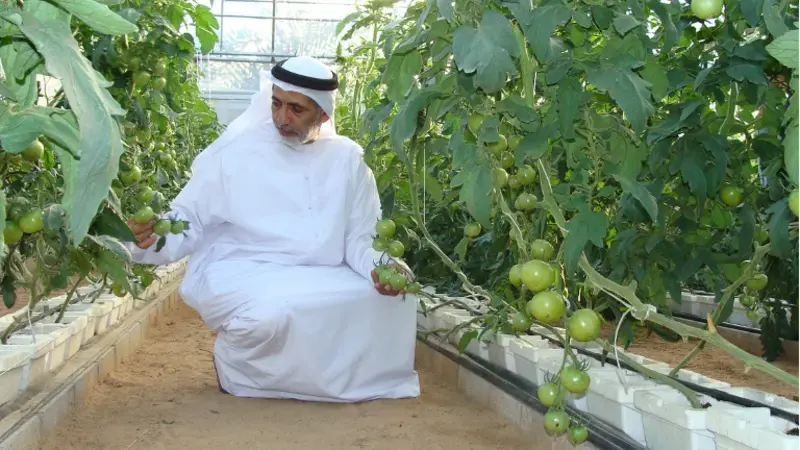
ICARDA United Arab Emirates (UAE) Country Office established in 1995
Country manager: Abdoul Aziz Niane
Overview
ICARDA’s work in UAE is made possible through the financial support of the Arab Fund for Economic & Social Development (AFESD), Kuwait Fund For Arab Economic Development, and the Gulf Cooperation Council (GCC) in partnership with the National Agriculture Research institutions in the Kingdom of Bahrain, the United Arab Emirates, the State of Kuwait, the Sultanate of Oman, the State of Qatar, the Kingdom of Saudi Arabia, and the Republic of Yemen, and the Khalifa International Award for Date Palm and Agricultural Innovation.
The combination of limited arable land, low soil fertility, scarce water resources, and extreme temperatures makes open field cultivation highly challenging across the Arabian Peninsula. To combat this, the ICARDA team based in UAE and the National Agriculture Research Systems (NARS) in the six GCC countries and Yemen, deploy protected agriculture innovation packages, suitable farming methods, and water-saving technologies to enable better desert family farming.
In 1988, ICARDA began a special program for the Arabian Peninsula (AP) countries called the Arabian Peninsula Regional Program (APRP). The partnership with AP, especially with the UAE, became stronger in 1995 when ICARDA established its regional office in Dubai hosted by the Ministry of Climate Change and Environment (previously known as the Ministry of Agriculture and Fisheries).
Since 1995, ICARDA has carried out several projects in AP and UAE in close collaboration with National Agricultural Research and Extension Systems. Outputs of these collaborations are demonstrated by the useful technology packages developed by APRP in rangeland rehabilitation, irrigated forages, on-farm water management and protected agriculture, and in date palm production and value chain development. ICARDA-APRP adopted and tested the developed technology packages at several pilot private farms. These packages have positive impacts on the welfare of poor farmers in the region, and the management of natural resources and the environment.
Activities
Increasing adoption of high-intensity techniques for more water-use efficient production of high-quality cash crops (soilless production system).
Increasing adoption of Integrated Production and Protection Management Program for high-quality cash crops, reducing pesticide residue and hazardous chemical use.
Designing new renewable energy-powered greenhouses and cooling systems.
Promoting an integrated production system for indigenous forage species with high water-use efficiency for AP farmers.
Developing an integrated production system for spineless forage cactus.
Enhancing adoption of new forage and rangeland production systems by providing large quantities of seeds of suitable species.
Developing participatory technology for rangeland rehabilitation through water harvesting and re-seeding techniques.
Introducing highly nutritious fodder species that are resistant to water scarcity and salinity.
Irrigating forage crops with safe and treated wastewater.
Improving livestock diets with alternative feed resources, including food pellets.
Drawing the UAE’s rangeland map and developing suitable adaptation strategies to cope with climate change to improve the resilience of indigenous species.
Further scaling of Big Data and ICT to help decision-makers enact the best policies for long-term sustainability and growth of the sector.
IMPACT
- Tomato yields increased by 192% in soilless culture compared to soil-based protected culture. Hydroponics save about 120 m3 of water for each ton of tomato compared to conventional soil systems.
- Soilless cucumber producers have experienced a two-fold increase in income compared to soil-based greenhouse cultivation.
- Greenhouse Integrated Pest Management (IPM) has reduced the need for agrochemicals by 80% and led to a 61% yield improvement and water savings of over 50%.
- Many UAE farmers tested Buffelgrass cultivation, saving roughly 850 m3 of water for each ton of dry matter produced compared to conventional Rhodes grass.
- Introducing liquid pollination reduced pollination costs by 89% and increased farmers’ net revenue by UAE dirham 36,514 (USD 9,939)/ha.
- The subsurface irrigation system tested on 7,000 date palm trees at Al-Foah Organic Farming Company saved 41% of irrigation water.
- Two bio‐pesticides (Baicao No.1 and Matrine 0.36%) proved effective against devastating pests, such as borers and mites in palm plantations.
- Introducing date-drying chambers for local smallholders has slashed post-harvest losses and enhanced date crops quality and market price.

